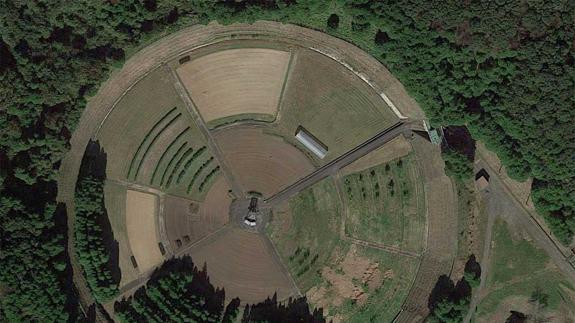

Secciones
Servicios
Destacamos

Denise Bush
Friday, 16 March 2018, 14:46
After WWII, there was an initiative to develop alternative uses for fission energy. It was called Atoms for Peace and part of it included atomic gardening. Gamma gardens, as they are known, were created in the US, India, Japan, Europe and Russia to study the effects of radiation on plant life.
The gardens were built in the shape of a cartwheel and covered about five acres. They were surrounded by an eight metre high dyke to prevent the radiation spreading outside the garden. At the hub of the wheel was the radioactive material, either Cobalt -60 or Caesium-137.
The wheel was planted with different plants which were left exposed to the radiation for seven to eight months. The plants closest to the radioactive source usually died, the ones a bit further out developed tumours and were misshapen but the plants furthest away mutated and produced new usable plants.
The Rio Star grapefruit and a strain of peppermint resistant to verticillium wilt was developed in this way. Many of the mutations developed went into commercial production (Rio Star grapefruit account for 75% of Texas' grapefruit crop) and are still grown today.
The Atomic Gardening Society was started in 1959 by Briton Muriel Howorth, an atomic activist. The society distributed irradiated seeds to keen gardeners who were supposed to report back on the results. Interest faded in the 60s as gardeners' feedback was sporadic and enthusiasm waned.
Publicidad
Publicidad
Publicidad
Publicidad
Esta funcionalidad es exclusiva para registrados.
Reporta un error en esta noticia

Debido a un error no hemos podido dar de alta tu suscripción.
Por favor, ponte en contacto con Atención al Cliente.

¡Bienvenido a SURINENGLISH!

Tu suscripción con Google se ha realizado correctamente, pero ya tenías otra suscripción activa en SURINENGLISH.
Déjanos tus datos y nos pondremos en contacto contigo para analizar tu caso

¡Tu suscripción con Google se ha realizado correctamente!
La compra se ha asociado al siguiente email
Comentar es una ventaja exclusiva para registrados
¿Ya eres registrado?
Inicia sesiónNecesitas ser suscriptor para poder votar.